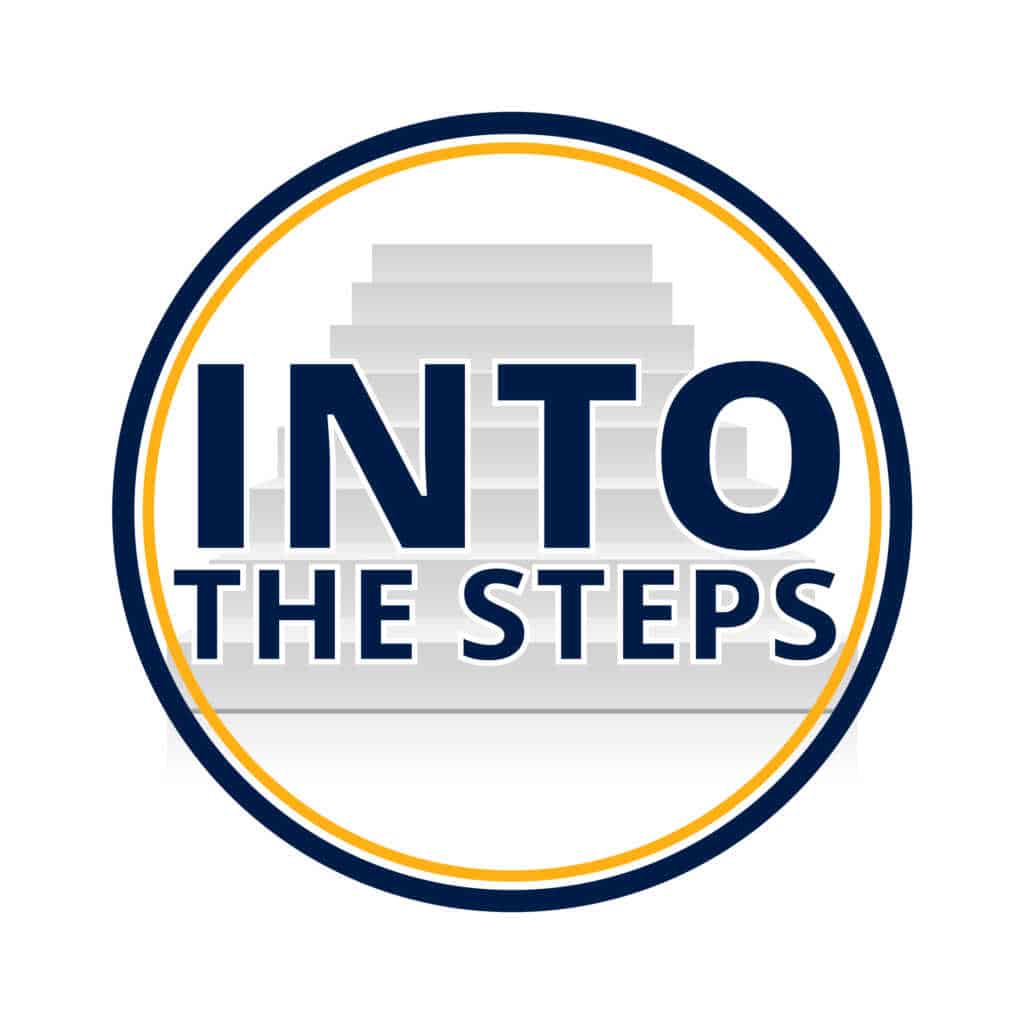Step 10
Step 10 Summarized
Step Ten is to take a daily inventory of ourselves. At the end of our days, and periodically throughout the day, we review our conduct, attitude and beliefs. We look at where we may be acting selfishly, dishonestly, fearfully or with wrong motives. By staying self-aware, we are able to quickly spot when we are off track and correct our course. This will prevent us from slipping back into our old ways or causing more harm.
Into the Steps
Into the Steps is a series of articles that dives deep into each of the 12 Steps. While Guardian Recovery is not affiliated with Alcoholics Anonymous, we have been utilizing the 12-Step process in a treatment setting for more than 15 years. We have found that the steps, especially in combination with our clinical therapy offerings, are a powerful tool for helping individuals transform their lives and find lasting freedom from addiction.
It is highly encouraged that you do not attempt to take these steps alone, but rather with a trusted guide called a sponsor who can walk you through them and be your support. Or, you can come work them at a Guardian Recovery treatment program. Unlike many other treatment centers, we don’t just teach individuals about the steps, we actively work them. Find a facility here.
Steps 7-9 Recap
In Step Seven we humbly ask our Higher Power to remove our character defects. These defects were revealed to us through the Fourth Step inventory process. Because we are now clear on what our flaws are, and because we have asked our Higher Power to remove them, we can move forward in faith that our Higher Power has changed us enough to be able to make honest and heartfelt amends. In Step Eight we prepare for those amends. We make a list of all the people we have harmed over the course of our lives. When we have resistance to making amends to those people, we pray for our Higher Power to give us the willingness. When we are ready and willing, we move on to Step Nine, which is to make our amends. We set out to correct the damages we caused. Once we have completed our amends, and cleaned up the wreckage of our past, we will want to keep our lives clean. How do we do this? By practicing self-appraisal in Step Ten.
Step Ten Explained
In the Big Book of Alcoholics Anonymous, it states that after we have completed our amends, “our next function is to grow in understanding and effectiveness.” The goal of our recovery is to continually grow into better people — to become less angry and selfish — and more loving, patient, tolerant and kind. The way we do that is through Step Ten, which is a daily inventory of our conduct, attitude and beliefs.
In Step Four, we learned how to take inventory of our lives and to analyze our part in the situations that caused emotional turmoil. Step Ten is quite similar. Whenever we feel any sort of negative emotion, it should serve as a red flag for us to stop and look at ourselves.
We can do this in a few different ways — the first is to take inventory in the heat of the moment. This is what A.A. calls a “spot-check inventory.” The second is to wait and write about the situation in our nightly inventory. And lastly, if we haven’t already cleaned it up in our nightly inventory, we can take a look at it in a periodic review. This, however, is not recommended because our problems are bound to pile up on us over time if we are not continually cleaning our emotional house.
Types of Inventory
Spot-Check Inventory
To complete a spot-check inventory, we will take a pause from the current troubling situation. In the moment, we will ask ourselves what we are feeling, what we are thinking, what stories we might be making up in our mind, and how we are acting. We will ask ourselves if some of our character defects are cropping up again. We will ask ourselves if we are being selfish, dishonest, self-centered or afraid. We will ask ourselves what our real motives are for doing whatever it is we are doing. We will call our sponsors and/or pray for the next right thought or action. When we do this, we are essentially re-aligning ourselves to our Higher Power’s will for us and those around us. This always equates to us acting with more love, kindness and tolerance.“The quick inventory is used for our daily ups and downs, especially those where people or new events throw us off balance and tempt us to make mistakes. In all these situations we need self-restraint, honest analysis of what is involved, a willingness to admit when the fault is ours, and an equal willingness to forgive when the fault is elsewhere. We need not be discouraged when we fall into the error of our old ways, for these disciplines are not easy. We shall look for progress, not perfection.” — A.A. Twelve & Twelve
Nightly Review
The second type of inventory is our nightly review. Instructions can be found on page 86 in the Big Book of Alcoholics Anonymous. It is recommended by many of our sponsors to write our inventory by hand — pen to paper; but there are other tools to help us facilitate our nightly inventory if we so choose, such as phone apps and worksheets. The idea is to review the 24 hours prior. We look for what areas of our day went well, and what areas of our day did not go well. We look for where we acted with love and kindness, and where we acted out of anger or bitterness.The Big Book suggests we ask ourselves the following questions:
- Where have we been selfish, dishonest, self-seeking or afraid?
- Do we owe an apology?
- Have we kept something to ourselves that should be discussed with another person at once?
- Were we kind and loving toward all?
- What could we have done better?
- Were we thinking of ourselves most of the time?
- Or were we thinking of what we could do for others, of what we could pack into the stream of life?
Into the Steps
Semi-Annual Review
The last type of inventory is to do an annual or semi-annual housecleaning where we review our progress overall. Some of us find it useful to go on a retreat where we can be quiet and self-reflective. Some of us write a mini Fourth Step to go over with our sponsors. The details don’t matter as much as it does that we are looking at ourselves honestly. Have we grown? What do we still need to work on?
The A.A. Big Book is clear that we must continue to take personal inventory or we risk backsliding toward our addiction.
“It is easy to let up on the spiritual program of action and rest on our laurels. We are headed for trouble if we do for alcohol is a subtle foe. WE are not cured of alcoholism. What we really have is a daily reprieve contingent on the maintenance of our spiritual condition. Everyday is a day when we must carry the vision of God’s will into all our activities.” — Pg. 84 in the Big Book of Alcoholics Anonymous
10th Step Tips From the Twelve & Twelve
- Self restraint is of the utmost importance. Practice restraint of pen and tongue. Do not be reactionary and act impulsively.
- Watch out for ego, especially when experiencing success. Success can be a relapse trigger because we lose touch with the humility it takes to practice self-awarness, self-sacrifice and selflessness.
- When we are upset with another person, we must realize that that person is also spiritually sick. We need to practice tolerance and forgiveness.
“It will become more and more evident as we go forward that it is pointless to become angry, or to get hurt by people who, like us, are suffering from the pains of growing up.” — A.A. Twelve & Twelve
- Try not to make unreasonable demands upon those you love
- Most of us are apathetic or averse to others. We only practice loving a select few. Try to practice loving all people.
- With those you dislike, go out of your way to understand and help them
- Remember to track your character assets as well as your flaws
- Check your motives. Pay particular attention to behaviors that on the surface appear to be good, but underneath are really for a wrong motive.
- Visualize how you might have done better and how you might do better tomorrow.
Guardian Recovery & the 10th Step
Learning to change our negative thinking patterns, behaviors and attitudes is strenuous work. Sometimes we don’t have all the tools we need to change our thoughts and actions. Sometimes we need extra help. At Guardian Recovery, we utilize a powerful combination of 12-Step immersion and therapy to help individuals truly change. The therapeutic techniques we use — which include cognitive behavioral therapy and dialectical behavior therapy — are proven techniques to help individuals stabilize their moods, change their thought patterns and shift their behaviors. These techniques, in combination with the self-appraisal practice of the Tenth Step, really help.
If you feel you or a loved one might benefit from therapy while going through the Steps in a structured, supportive and professional environment, you might consider treatment at a Guardian Recovery facility. While we are not affiliated with Alcoholics Anonymous in any way, our programs have utilized the 12-Step recovery process for more than 15 years. At our facilities we don’t just teach you about the Steps. We actively take you through them. While in residential inpatient and partial hospitalization treatment, individuals generally complete Steps 1-7. However, many individuals continue on in our Intensive Outpatient Programs during which they finish all 12 Steps. Throughout every phase, individuals participate in extensive therapy with licensed therapists.
To learn more about Guardian Recovery’s facilities, contact us today. Our team of compassionate Treatment Advisors are available 24/7 to help you craft a plan for your recovery. Freedom from addiction is possible. Find hope at Guardian Recovery.
Get Started Now
Give us a call 24/7


